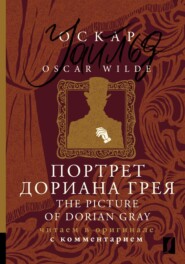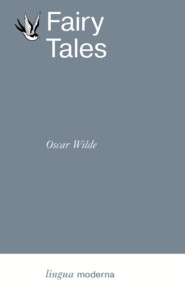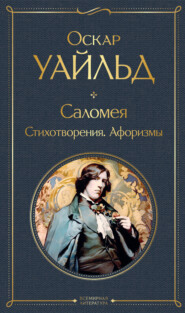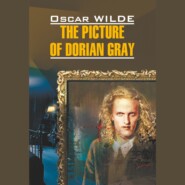По всем вопросам обращайтесь на: info@litportal.ru
(©) 2003-2024.
✖
The Happy Prince and Other Stories
Автор
Год написания книги
2019
Настройки чтения
Размер шрифта
Высота строк
Поля
Wilde was born into a privileged Dublin family. He had a fairly uneventful childhood, but performed very well at university, studying at Magdalen College, Oxford. It was as a student that he began to use his high intellect to put others down, and as a result many of his peers took a dislike to him. He also began to cultivate an image for himself that could be described as outrageously camp, in both appearance and conduct. It was the behaviour of homosexuals such as Wilde that led to the word ‘gay’ earning its modern meaning, because people began using the term in describing this tendency for gaiety in demeanour. It was a euphemism that mutated over time. Needless to say, Wilde’s effeminate and showy image, although entertaining to some, was thought immoral by polite Victorian society. For every person who celebrated his outlandish posturing there was someone else who wanted him to fall from grace.
Despite Wilde’s sexual orientation he did his best to conceal it for fear of prosecution. This included his becoming betrothed and producing two sons. One of his sons sadly perished in World War I. The other became an author himself, but he concealed his identity for many years due to his father’s reputation and following his disgrace and downfall.
Wilde finally capitulated to his homosexual desires when he met a boy named Robert Ross and fell in love. He had undoubtedly known about his leanings but managed to constrain himself until Ross appeared. Wilde is known to have relished the excitement that came from the danger of his situation. He had a number of further homoerotic encounters and became involved with a group of homosexual men who were secretly campaigning for reforms in the law to decriminalize their behaviour.
Unfortunately for Wilde he had begun an affair with the son of the Marquess of Queensbury and this proved his undoing. The Marquess blamed Wilde for perverting his son’s sexuality and was determined to see Wilde prosecuted for his crimes. Ironically it was Wilde who took the Marquess to court for criminal libel, such was Wilde’s overconfidence. Things backfired though, and Wilde found himself in the dock for ‘gross indecency’. He was sentenced to two years hard labour, which he served at Pentonville, Wandsworth and Reading prisons.
After completing his sentence Wilde took a new name and fled to Europe as Sebastian Melmoth. His experience as a convict had affected his health badly and he survived for only three more years, dying at the age of 46 in Paris. Had his health been more vigorous, Wilde may well have seen a time when society forgave him for his indiscretions, for his talent as a writer was undisputed. As it was, he passed away before the dust had settled and a long time before homosexuality became decriminalized.
The Happy Prince and Other Stories
Wilde’s collection of short stories for children, The Happy Prince and Other Stories, is imbued with a timeless quality, as if derived from the collective folklore of a nation. The tales possess such romantic charm and moral charge that they read like traditional fables crafted and refined by generations of storytellers over hundreds of years.
Superficially these stories are written for children, but they sparkle with wisdom and allegory that is immensely appealing to adults too. The collection is best known for its title story, ‘The Happy Prince’, which tells a tale of kindness, self-sacrifice and ultimate reward. An idealistic tale, Wilde anthropomorphizes a swallow and breathes life into a stone statue to act the parts of his central characters. Each story both captures the reader’s imagination and inspires reflection on the moral at its heart.
Walter Crane, a highly influential commercial artist with a distinctive style, illustrated the first edition of the book, along with Jacob Hood. He successfully encapsulated the spirit of children’s stories in his drawings and paintings, bringing further vitality to Oscar Wilde’s words.
The Happy Prince and Other Stories was part of Wilde’s experimentation period as a writer during the 1880s, when he regularly contributed fairy tales to magazines. Despite his evident talent for the genre, he found greater success as a playwright and novelist over the following ten years, before his early death at the age of 46.
The Plays
Between 1879 and 1894 Oscar Wilde wrote nine plays in total. Lady Windermere’s Fan, A Woman of no Importance, An Ideal Husband and The Importance of Being Earnest were his most well-loved and popular, the latter being regarded as his masterpiece. Victorian melodrama was Wilde’s favoured genre, however he introduced the ‘dandy’ character to his plays, always a man obsessed with his own appearance who speaks in paradoxes and is self-mocking, whilst at the same time casting criticisms and witty, insightful asides on the dubious morals of those around him. The ‘dandy’ was almost entirely autobiographical and frequently used in Wilde’s plays as a stand-in for himself.
In 1895 An Ideal Husband published at a time of Imperial expansion where the Victorian public were expected to adhere to the strict social mores of the time both publicly and privately. Wilde’s play pits traditional Victorian moral sensibilities against his own love for aesthetic affectations, where freedom, beauty and pleasures were revered. The ‘dandy’ appears in An Ideal Husband, largely there to represent Wilde and his own feelings on the matter in stark contrast to the rigid mindset of the other ‘ideal’ characters in the play.
The Importance of Being Earnest was experimental in its nature, satirising the artifice of Victorian society and stabbing fun at the hypocrisy and self-righteousness of society while presenting itself on the surface as an intelligent, yet farcical comedy of manners. After Wilde’s death in 1900, the play continued to be regarded as a light, breezy and frivolous comedy, reflective of the mindset of the era where homosexuality was considered a taboo topic. It was not until the 1960s when homosexuality was decriminalised in England and an interest in gay culture was beginning to spread that the play began to be dissected by readers, who began to see a subtext emerge where the hypocrisy of the Victorians and their guarded references to homosexuality became more apparent.
THE HAPPY PRINCE AND OTHER STORIES (#u96b5c3af-fd2e-593b-bf24-6c98ca73f901)
THE HAPPY PRINCE (#u96b5c3af-fd2e-593b-bf24-6c98ca73f901)
High above the city, on a tall column, stood the statue of the Happy Prince. He was gilded all over with thin leaves of fine gold, for eyes he had two bright sapphires, and a large red ruby glowed on his sword-hilt.
He was very much admired indeed. “He is as beautiful as a weathercock,” remarked one of the Town Councillors who wished to gain a reputation for having artistic tastes; “only not quite so useful,” he added, fearing lest people should think him unpractical, which he really was not.
“Why can’t you be like the Happy Prince?” asked a sensible mother of her little boy who was crying for the moon. “The Happy Prince never dreams of crying for anything.”
“I am glad there is some one in the world who is quite happy,” muttered a disappointed man as he gazed at the wonderful statue.
“He looks just like an angel,” said the Charity Children as they came out of the cathedral in their bright scarlet cloaks and their clean white pinafores.
“How do you know?” said the Mathematical Master, “you have never seen one.”
“Ah! but we have, in our dreams,” answered the children; and the Mathematical Master frowned and looked very severe, for he did not approve of children dreaming.
One night there flew over the city a little Swallow. His friends had gone away to Egypt six weeks before, but he had stayed behind, for he was in love with the most beautiful Reed. He had met her early in the spring as he was flying down the river after a big yellow moth, and had been so attracted by her slender waist that he had stopped to talk to her.
“Shall I love you?” said the Swallow, who liked to come to the point at once, and the Reed made him a low bow. So he flew round and round her, touching the water with his wings, and making silver ripples. This was his courtship, and it lasted all through the summer.
“It is a ridiculous attachment,” twittered the other Swallows; “she has no money, and far too many relations”; and indeed the river was quite full of Reeds. Then, when the autumn came they all flew away.
After they had gone he felt lonely, and began to tire of his lady-love. “She has no conversation,” he said, “and I am afraid that she is a coquette, for she is always flirting with the wind.” And certainly, whenever the wind blew, the Reed made the most graceful curtseys. “I admit that she is domestic,” he continued, “but I love travelling, and my wife, consequently, should love travelling also.”
“Will you come away with me?” he said finally to her; but the Reed shook her head, she was so attached to her home.
“You have been trifling with me,” he cried. “I am off to the Pyramids. Good-bye!” and he flew away.
All day long he flew, and at night-time he arrived at the city. “Where shall I put up?” he said; “I hope the town has made preparations.”
Then he saw the statue on the tall column.
“I will put up there,” he cried; “it is a fine position, with plenty of fresh air.” So he alighted just between the feet of the Happy Prince.
“I have a golden bedroom,” he said softly to himself as he looked round, and he prepared to go to sleep; but just as he was putting his head under his wing a large drop of water fell on him. “What a curious thing!” he cried; “there is not a single cloud in the sky, the stars are quite clear and bright, and yet it is raining. The climate in the north of Europe is really dreadful. The Reed used to like the rain, but that was merely her selfishness.”
Then another drop fell.
“What is the use of a statue if it cannot keep the rain off?” he said; “I must look for a good chimney-pot,” and he determined to fly away.
But before he had opened his wings, a third drop fell, and he looked up, and saw—Ah! what did he see?
The eyes of the Happy Prince were filled with tears, and tears were running down his golden cheeks. His face was so beautiful in the moonlight that the little Swallow was filled with pity.
“Who are you?” he said.
“I am the Happy Prince.”
“Why are you weeping then?” asked the Swallow; “you have quite drenched me.”
“When I was alive and had a human heart,” answered the statue, “I did not know what tears were, for I lived in the Palace of Sans-Souci, where sorrow is not allowed to enter. In the daytime I played with my companions in the garden, and in the evening I led the dance in the Great Hall. Round the garden ran a very lofty wall, but I never cared to ask what lay beyond it, everything about me was so beautiful. My courtiers called me the Happy Prince, and happy indeed I was, if pleasure be happiness. So I lived, and so I died. And now that I am dead they have set me up here so high that I can see all the ugliness and all the misery of my city, and though my heart is made of lead yet I cannot choose but weep.”
“What! is he not solid gold?” said the Swallow to himself. He was too polite to make any personal remarks out loud.
“Far away,” continued the statue in a low musical voice, “far away in a little street there is a poor house. One of the windows is open, and through it I can see a woman seated at a table. Her face is thin and worn, and she has coarse, red hands, all pricked by the needle, for she is a seamstress. She is embroidering passion-flowers on a satin gown for the loveliest of the Queen’s maids-of-honour to wear at the next Court-ball. In a bed in the corner of the room her little boy is lying ill. He has a fever, and is asking for oranges. His mother has nothing to give him but river water, so he is crying. Swallow, Swallow, little Swallow, will you not bring her the ruby out of my sword-hilt? My feet are fastened to this pedestal and I cannot move.”
“I am waited for in Egypt,” said the Swallow. “My friends are flying up and down the Nile, and talking to the large lotus-flowers. Soon they will go to sleep in the tomb of the great King. The King is there himself in his painted coffin. He is wrapped in yellow linen, and embalmed with spices. Round his neck is a chain of pale green jade, and his hands are like withered leaves.”
“Swallow, Swallow, little Swallow,” said the Prince, “will you not stay with me for one night, and be my messenger? The boy is so thirsty, and the mother so sad.”
“I don’t think I like boys,” answered the Swallow. “Last summer, when I was staying on the river, there were two rude boys, the miller’s sons, who were always throwing stones at me. They never hit me, of course; we swallows fly far too well for that, and besides, I come of a family famous for its agility; but still, it was a mark of disrespect.”
But the Happy Prince looked so sad that the little Swallow was sorry. “It is very cold here,” he said; “but I will stay with you for one night, and be your messenger.”
“Thank you, little Swallow,” said the Prince.
So the Swallow picked out the great ruby from the Prince’s sword, and flew away with it in his beak over the roofs of the town.
He passed by the cathedral tower, where the white marble angels were sculptured. He passed by the palace and heard the sound of dancing. A beautiful girl came out on the balcony with her lover. “How wonderful the stars are,” he said to her, “and how wonderful is the power of love!”

















